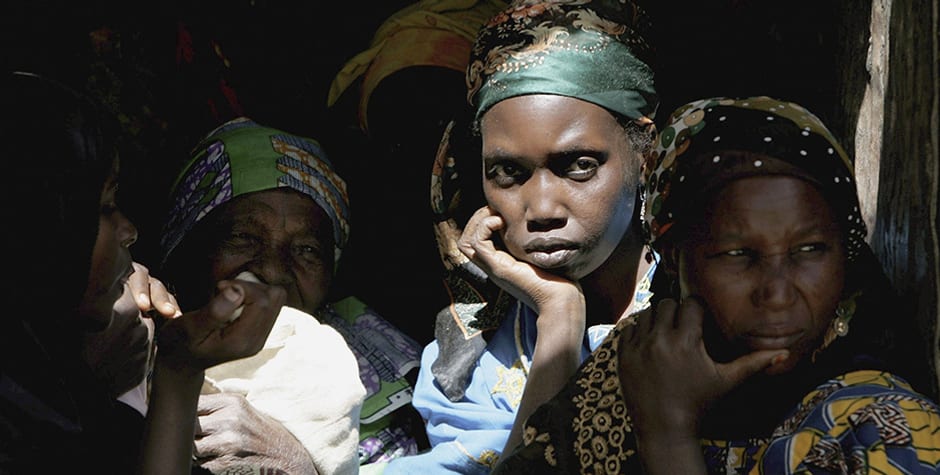The Continuing Threat of Radical Islamic Terrorism
Listen tothis article
This past weekend, the world barely noticed as Boko Haram militants stormed a church in northeastern Nigeria, killing 22 Christian worshippers gathered for Sunday service on April 26th. The victims included women and children, slaughtered simply for practicing their faith. This brutal attack over the weekend is just one of many over the years that have cost the lives of many across Nigeria’s predominantly Christian regions.
While global headlines fixate on Russian aggression in Ukraine, Chinese expansionism in the South China Sea, and Iran’s nuclear ambitions, a persistent and deadly threat continues to metastasize across multiple continents: radical Islamic terrorism. The relative media silence on these attacks doesn’t make them any less destructive or significant to American interests and values.
When I was Secretary of State, I saw firsthand how terrorist organizations worked hard to expand their influence. From Africa to Southeast Asia, groups like ISIS, al-Qaeda, Boko Haram, and their various affiliates continue to wage war against religious minorities and Western values and interests.
Make no mistake: While the geographic caliphate of ISIS has been destroyed, its ideology lives on. These groups have developed sophisticated recruitment strategies that use social media to radicalize predominantly young men around the world, including inside the United States.
The threat to America isn’t merely theoretical. These organizations want to attack our homeland, threaten our allies, and undermine our way of life. Their hatred for America isn’t based on any specific policy grievance that can be negotiated away. Instead, it is simply a rejection of our values and our very existence as a free society.
During my tenure in the Trump Administration, we recognized this reality and took decisive action. We eliminated ISIS leader Abu Bakr al-Baghdadi and Iranian military commander Qasem Soleimani. We strengthened counterterrorism partnerships across the Middle East and Africa. We applied maximum pressure on state sponsors of terrorism like Iran. And crucially, we refused to pretend that radical Islamic terrorism could be defeated without naming it precisely for what it is.
As U.S. foreign policy continues to evolve and adapt to emerging threats, we must remain vigilant against the persistent dangers posed by terrorist organizations. Extremist groups can quickly fill power vacuums in unstable regions, as we’ve witnessed repeatedly throughout the Middle East, Africa, and South Asia. Strong international partnerships and a clear-eyed approach to confronting terrorism remain essential.
America’s work overseas to counter these terrorists isn’t just about improving the lives of friends and allies around the world. When America retreats from confronting terrorism abroad, we inevitably face greater threats at home. Fighting terrorism overseas ensures it doesn’t have a chance to attack us here in America.
To counter Islamic violent extremism, we need to take the following commonsense steps:
First, we have to be honest about the threat. Political correctness cannot dictate our security policies. Radical Islamic terrorism is driven by an extremist interpretation of Islam that seeks to impose its vision through violence. Most Muslims reject this interpretation, which is precisely why we must partner with them to defeat it.
Second, we must reinforce our intelligence capabilities and counterterrorism partnerships. American leadership remains essential to coordinating global efforts against terrorist networks.
Third, securing our borders. No counterterrorism strategy can succeed while we maintain what amounts to an open invitation for potential terrorists to enter our country.
Fourth, confronting state sponsors of terrorism, particularly Iran, with maximum pressure to hold them accountable for their actions.
Finally, promoting religious freedom worldwide. The brutal persecution of Christians, Jews, moderate Muslims, and other religious minorities by radical Islamic terrorists represents an assault on human dignity that we cannot ignore.
The Nigerian Christians massacred by Boko Haram deserve more than our fleeting attention. They deserve an America that leads with moral clarity and strategic purpose in confronting the ideology that murdered them. While we rightly focus on the challenges posed by great power competitors, we cannot afford to ignore the persistent threat of radical Islamic terrorism. American security and global stability depend on our vigilance against both.
